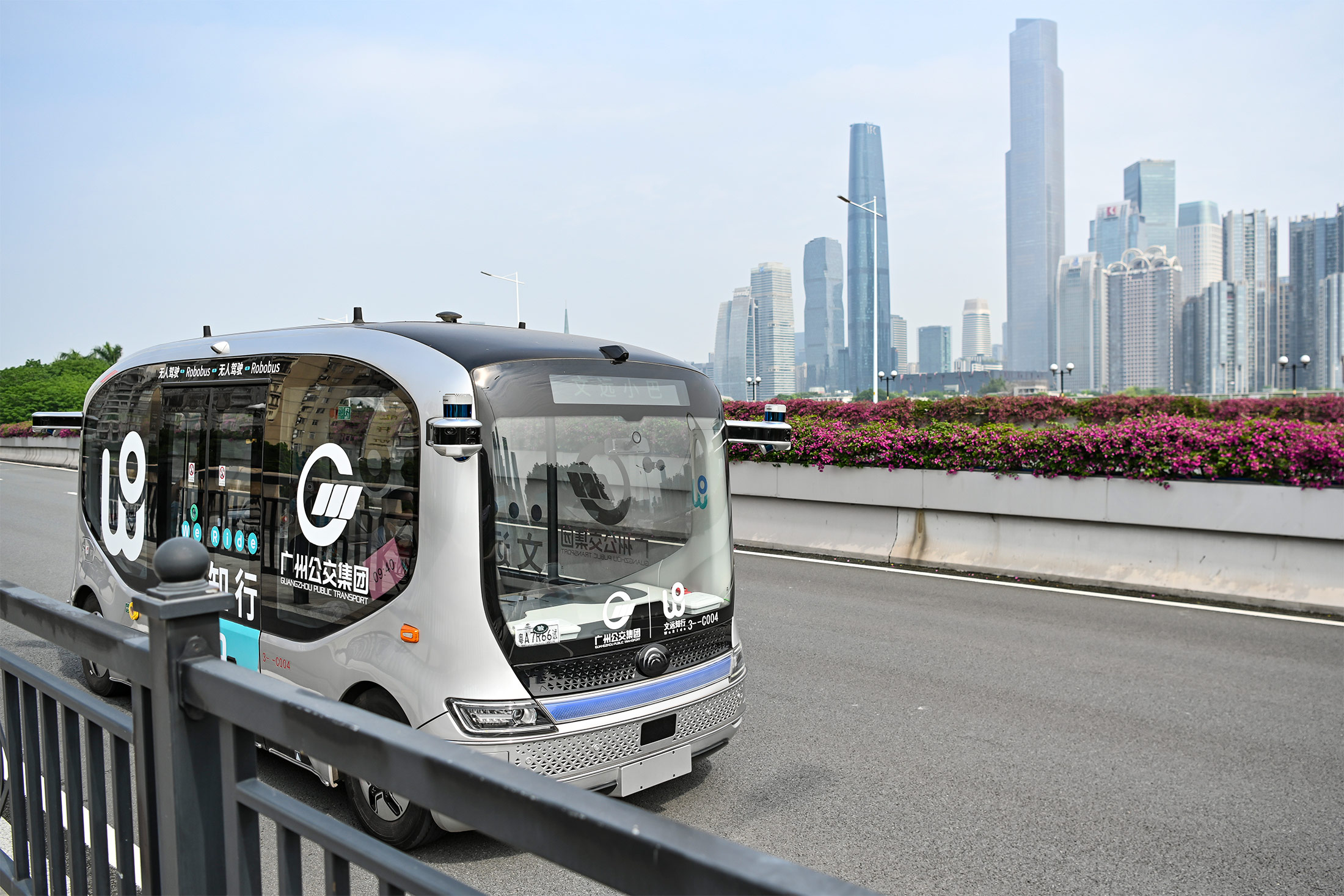
Self-driving technology company WeRide is pushing forward with its global expansion as the adoption of artificial intelligence (AI) in the transportation sector gains momentum. The firm, known for its innovations in autonomous driving, is exploring new markets and expanding its operations beyond China.
WeRide recently began safety testing for its “Robosweepers” in Singapore, after successfully implementing the technology in several Chinese cities. These autonomous vehicles are designed for sanitation tasks such as road sweeping, water spraying, and disinfection. They also possess capabilities to detect road conditions and navigate around pedestrians and obstacles, eventually operating without a safety driver once they pass the necessary safety tests.

In addition to the Robosweepers, WeRide launched an autonomous public shuttle bus service at Resorts World Sentosa in Singapore, with a safety driver onboard. This service highlights the company’s commitment to integrating AI-driven solutions into public transportation systems.
Founded in Silicon Valley in 2017, WeRide has steadily expanded its reach. The company launched its first robotaxi service in Guangzhou, China, in 2019 and has attracted strategic investments from major global automakers, including the Renault-Nissan-Mitsubishi alliance and GAC Group. WeRide’s technology spans various levels of autonomous driving, with its most advanced systems allowing vehicles to operate independently while still retaining a safety driver as a precautionary measure.
WeRide’s Global Expansion Timeline
| Date | Event | Description |
|---|---|---|
| 2017 | Founded in Silicon Valley | WeRide was established to develop autonomous driving technology. |
| 2019 | Launched robotaxi service in Guangzhou, China | First major deployment of autonomous driving technology. |
| June 2021 | Began safety testing of ‘Robosweepers’ in Singapore | Testing autonomous sanitation vehicles capable of sweeping, water spraying, and more. |
| June 2021 | Deployed autonomous public shuttle bus service at Resorts World Sentosa, Singapore | Public transport initiative with a safety driver onboard. |
| Ongoing | Expanding into Europe, attended French Open | Part of WeRide’s international expansion strategy. |
Kerry Xu, WeRide’s general manager in Singapore, emphasized the company’s international credentials, stating, “WeRide is the only company which has [driverless] permits from the U.S., China, UAE, and Singapore. Some [companies] just have permits from one or two countries, but we have four countries.” Xu added that the company views itself not just as a Chinese enterprise but as an international player, actively seeking to expand into new markets, including Japan and Europe.
The company’s international ambitions were underscored by its recent activities, such as attending the French Open and deploying a vehicle there. This move marks the beginning of WeRide’s expansion into the European market, according to Sebastian Yee, Singapore’s director of business development at WeRide.
WeRide also filed for an initial public offering (IPO) on the Nasdaq, though the company has not disclosed the amount it aims to raise. This IPO could become the largest U.S. listing by a Chinese company since Didi’s 2021 IPO. However, WeRide has acknowledged potential legal and operational risks associated with its operations primarily based in mainland China, as noted in its SEC filing.
The company’s choice of Singapore and the UAE for its expansion reflects these regions’ openness to autonomous vehicle technology and their established ecosystems that support such innovations. Yee highlighted the importance of governmental and regulatory support, stating that countries need a strong understanding of AI development and a “commercial sense” to foster the growth of autonomous technologies.
Singapore, in particular, has been proactive in the autonomous vehicle (AV) space, with various trials and initiatives, including A*STAR’s self-driving vehicle, which was the first approved for public road testing in 2015. Changi Airport is also set to trial a self-driving bus to transport workers around its restricted area, demonstrating the city’s commitment to integrating AVs into its transportation infrastructure.
The development of AVs is seen as a potential solution to workforce challenges in countries with aging populations, such as Japan and Singapore. By incorporating AVs into public transport, these nations aim to alleviate the pressure on their transportation systems caused by demographic shifts.
Meanwhile, the global AV landscape continues to evolve, with significant advancements from U.S. companies like Tesla and Alphabet’s Waymo. However, Chinese automakers are also making strides, as evidenced by recent approvals for nine domestic companies, including BYD and Nio, to test conditionally automated driving technologies on public roads. Tesla CEO Elon Musk is also eyeing regulatory approval for the firm’s Full-Self Driving technology in China by the end of this year.
Featured Image courtesy of Bloomberg
Follow us for more updates on self-driving cars.
